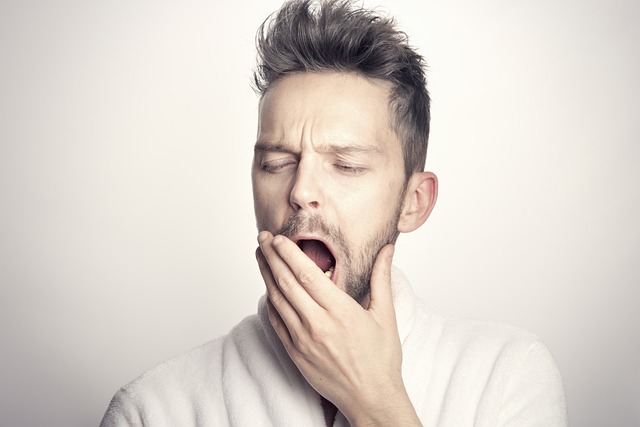
A few weeks back, we saw a bunch of news stories suggesting that roadside blood tests for sleepiness were on the way. Here’s one from the RAC, for example, and another from The Independent.
Actually, the story turns out to be a bit of a nothing-burger. All it amounts to is that there’s some promising research in Australia which might possibly developed into a viable test, maybe within five years.
However, that did start us thinking about the whole issue of driving and tiredness. We know it’s not a good idea to drive when you’re sleepy, but is it really that bad? And what does the law have to say about overtired drivers?
Let’s dive in.
Driving when tired: it affects you way more than you think
OK, so falling asleep at the wheel is obviously a potential catastrophe. If our school maths is correct, if you fall asleep for two seconds at 70 mph, your vehicle has travelled 62 metres (around 200 feet). Surely, not many people drive when they’re that tired?
Well, actually yes. According to Brake, the road safety charity, about one in eight drivers admit to falling asleep at the wheel.
However, the eye-opener (so to speak) is what even modest amounts of sleep deprivation will do. A study conducted by the US AAA Foundation for Traffic Safety concluded that:
…in a 24-hour period, crash risk for sleep-deprived drivers increased steadily when compared to drivers who slept the recommended seven hours or more:
- Six to seven hours of sleep: 1.3 times the crash risk
- Five to six hours of sleep: 1.9 times the crash risk
- Four to five hours of sleep: 4.3 times the crash risk
- Less than four hours of sleep: 11.5 times the crash risk
Source: Science Daily
So let’s say you generally get the recommended seven hours minimum sleep, but prior to your trip you miss out on an hour or two of shut-eye: your risk of being in a crash practically doubles. That fits in with other research suggesting that getting four or five hours of sleep impairs driving as much as being over the legal limit of alcohol.
Skipping an hour or two of sleep has the same effect as being over the limit? Really? It seems hard to swallow, but then again, fifty years ago, many didn’t want to believe that alcohol had any effect on their driving either. As most of us don’t carry around devices to measure our reaction time, we’re completely oblivious when it’s slowed down by 10% or 20%. Just because you feel exactly the same doesn’t mean you’re performing at the same level. And while we’re talking about response time, one study found that after 17-19 hours without sleep, we respond up to 50% slower.
All of which means that most of us don’t worry too much if we’ve had a late night before a drive. In fact, 49% of us say we’ve driven on less than five hours sleep.
What does all that mean in practice?
One problem with these doubling-your-risk-of-a-crash type statistics is that they miss an important part of the picture. They only tell us about relative risk.
Think of it like this: let’s say that wearing yellow swimming gear doubles your risk of being attacked by a shark in the UK. It sounds scary, but as the risk of being attacked by a shark in Blighty is close to zero (there have been three attacks since 1847), doubling it is still close to zero — and that means you could still buy those canary-yellow budgie smugglers with confidence. Makes sense?
What we need is some idea of how often driver fatigue causes accidents. Unfortunately, this sort of data is pretty hard to get. As things stand, there aren’t that many ways of conclusively finding out if someone was sleep-deprived, except in the most obvious cases. We’ll talk about that more in Part Two. What we can say is that sleep-related accidents are almost certainly under-reported, and perhaps massively so.
Bearing that in mind, researchers have come up with the following:
- 10 -20% of crashes are caused by driver fatigue.
- Police stats show that about 4% of fatal accidents in the UK are fatigue-related.
- However, given the under-reporting, it’s estimated that perhaps about a quarter of fatal and serious crashes may be fatigue-related.
- Sleep-related accidents tend to be more serious, with a 50% greater likelihood of resulting in death or serious injury.
OK, so that doesn’t fully answer the absolute risk question, but it’s enough to say that sleepy driving causes a lot more accidents than we had imagined!
Who is more likely to drive when fatigued?
Your starter for ten: which age group is most at risk of driving when fatigued?
Obviously, it’s the oldies, right? After all, older people need more sleep, and grandpa is always nodding off at the drop of a hat.
Nope, actually, 18 – 30 year old males are more likely to fall asleep when driving at night, and they’re also more likely to drive when they know they’re tired. This is probably related to great risk-taking behaviour in general, and also because actually young people need more sleep, not less (older people just tend to nap more).
What about the law?
In Part Two, we’ll aim to complete our title’s promise, delving into what the law has to say about sleepy driving. We might even quickly visit that nothing-burger of a blood test story. See you in a couple of weeks!
The WVS blog covers a wide range of automotive topics, from the contentious to the light-hearted. We are an independent garage specialising in the VW group marques, including Audi, Volkswagen, Skoda and SEAT. WVS provides services, repairs and MOTs, delivering a main dealer level of care at affordable prices. To book your vehicle in, or for any enquiries, get in touch.
